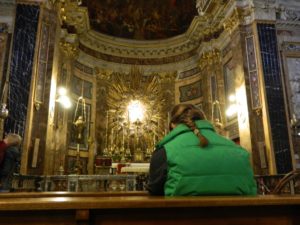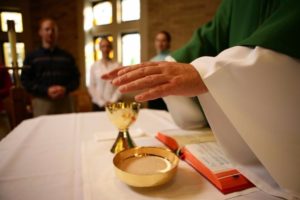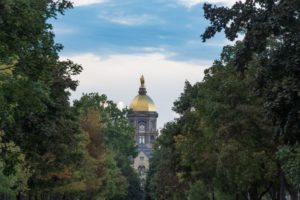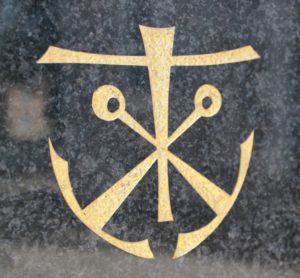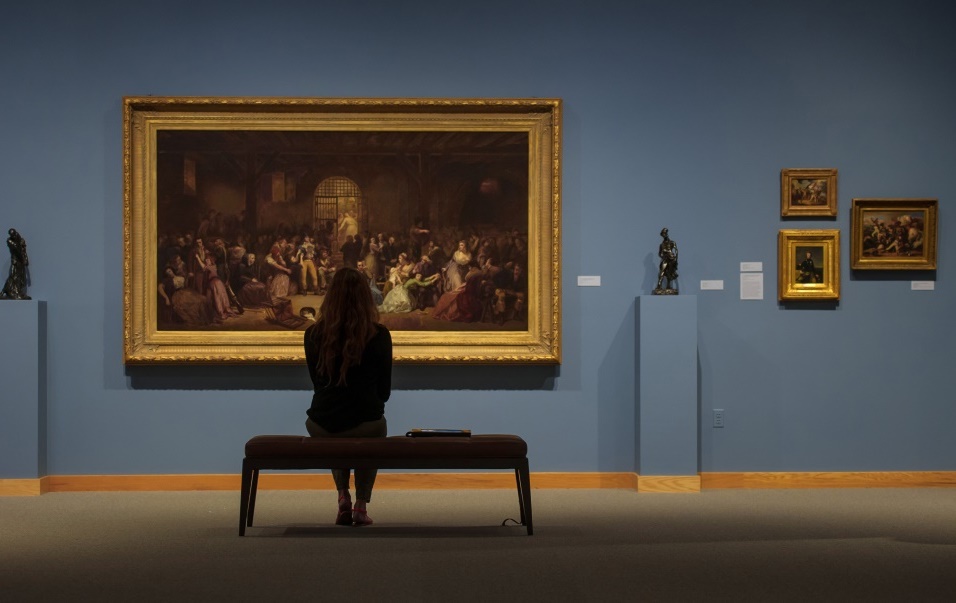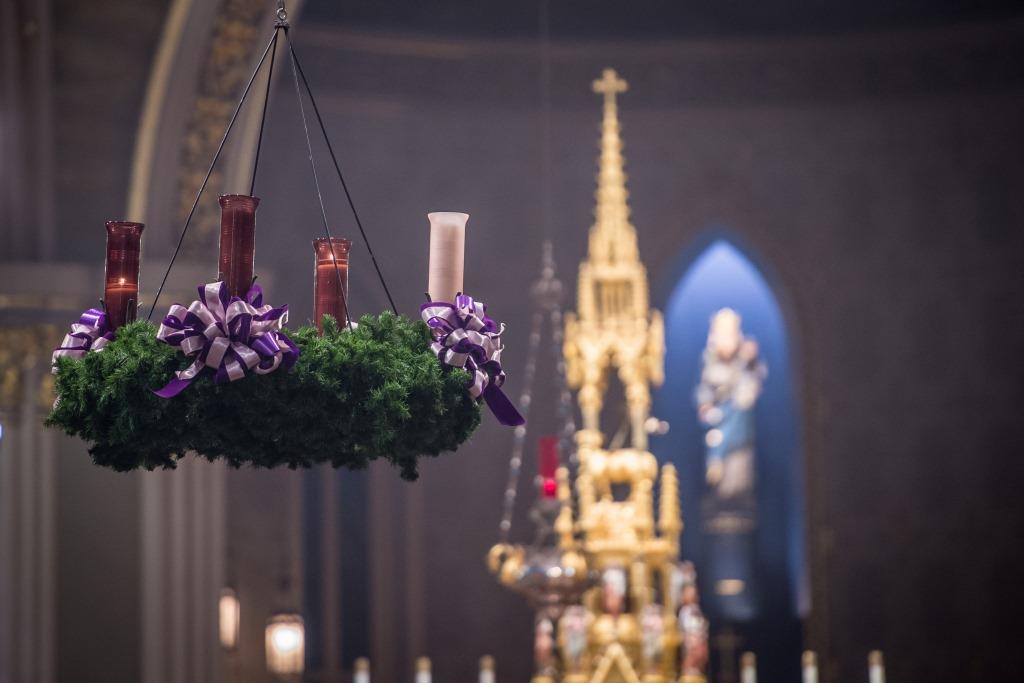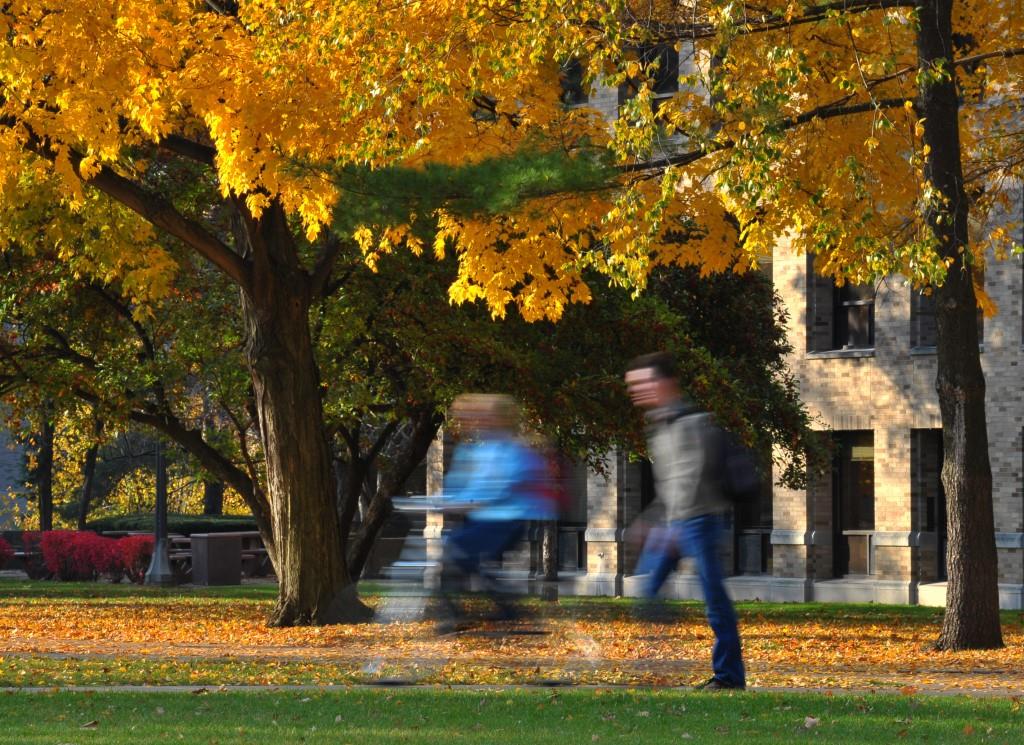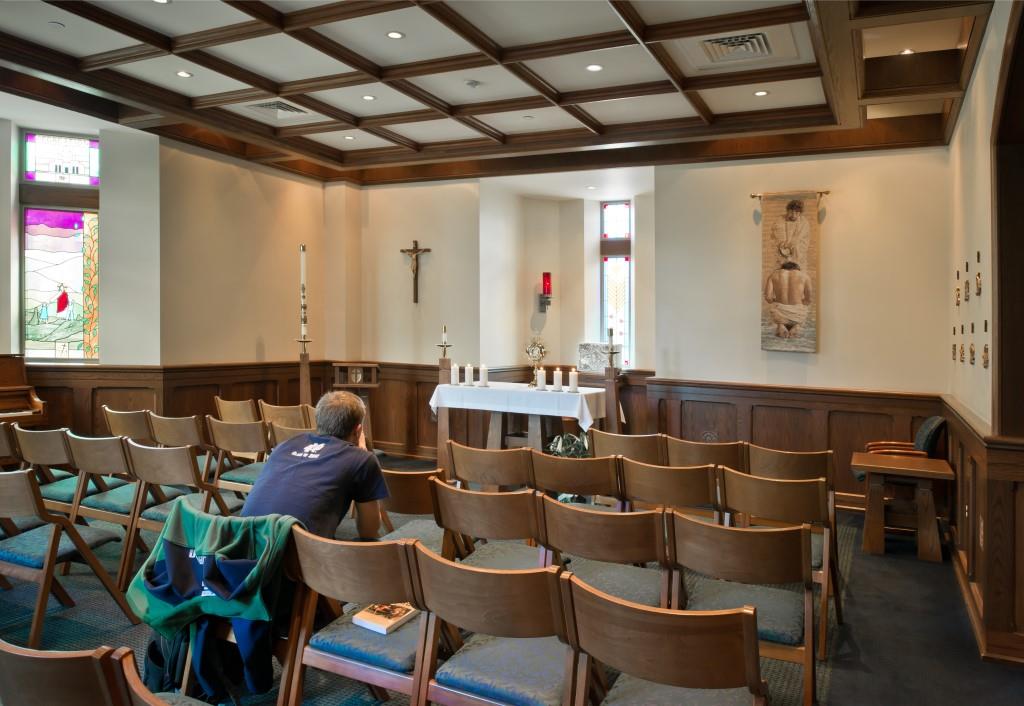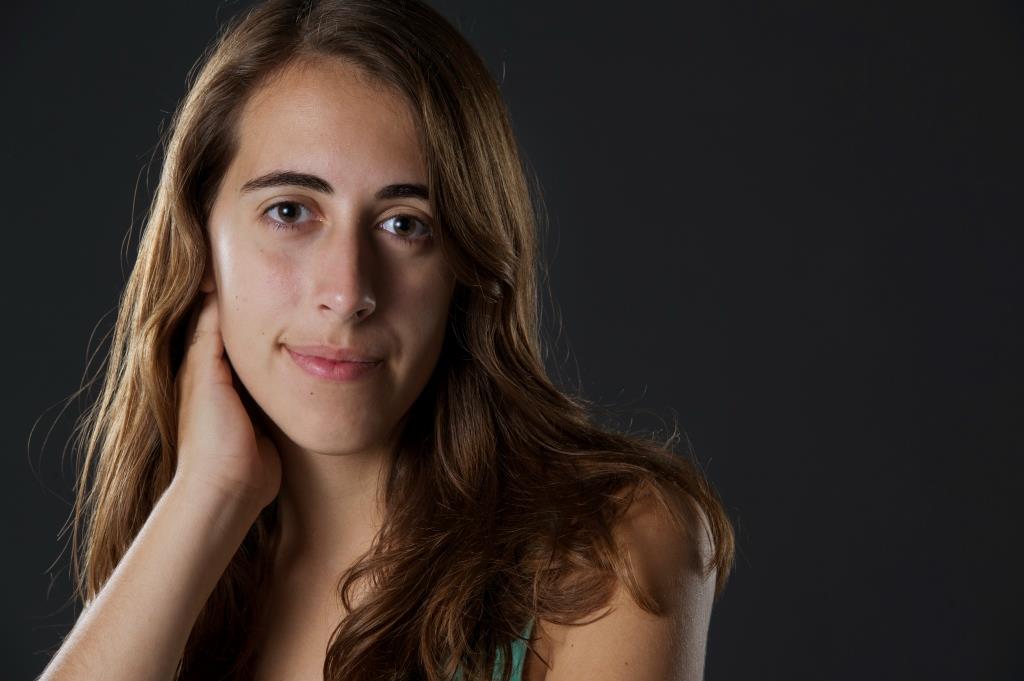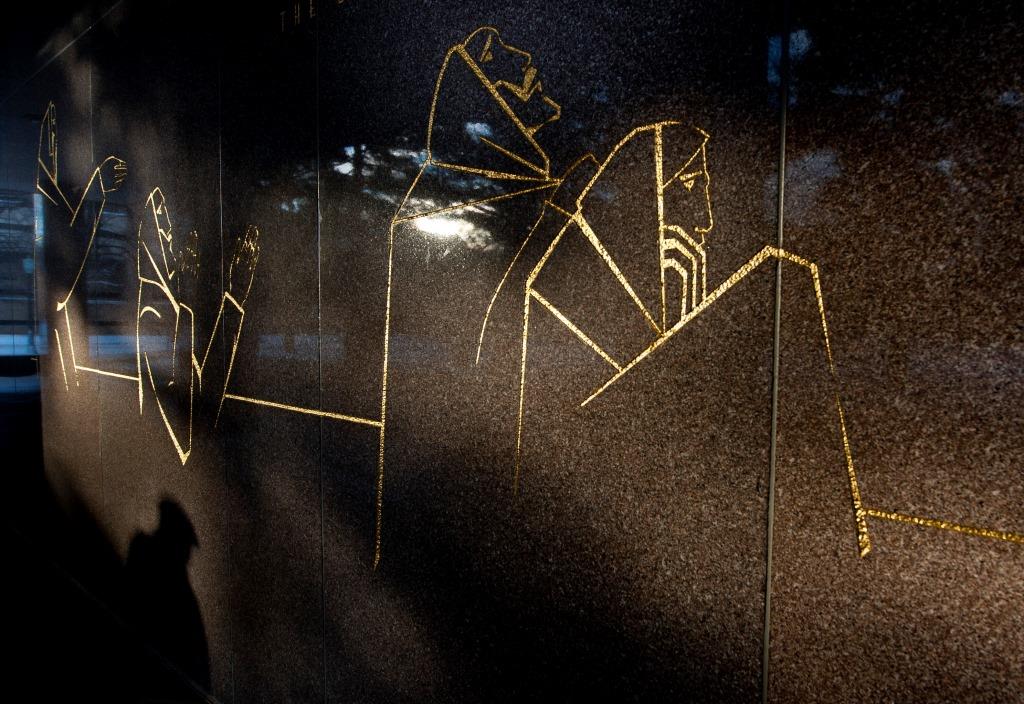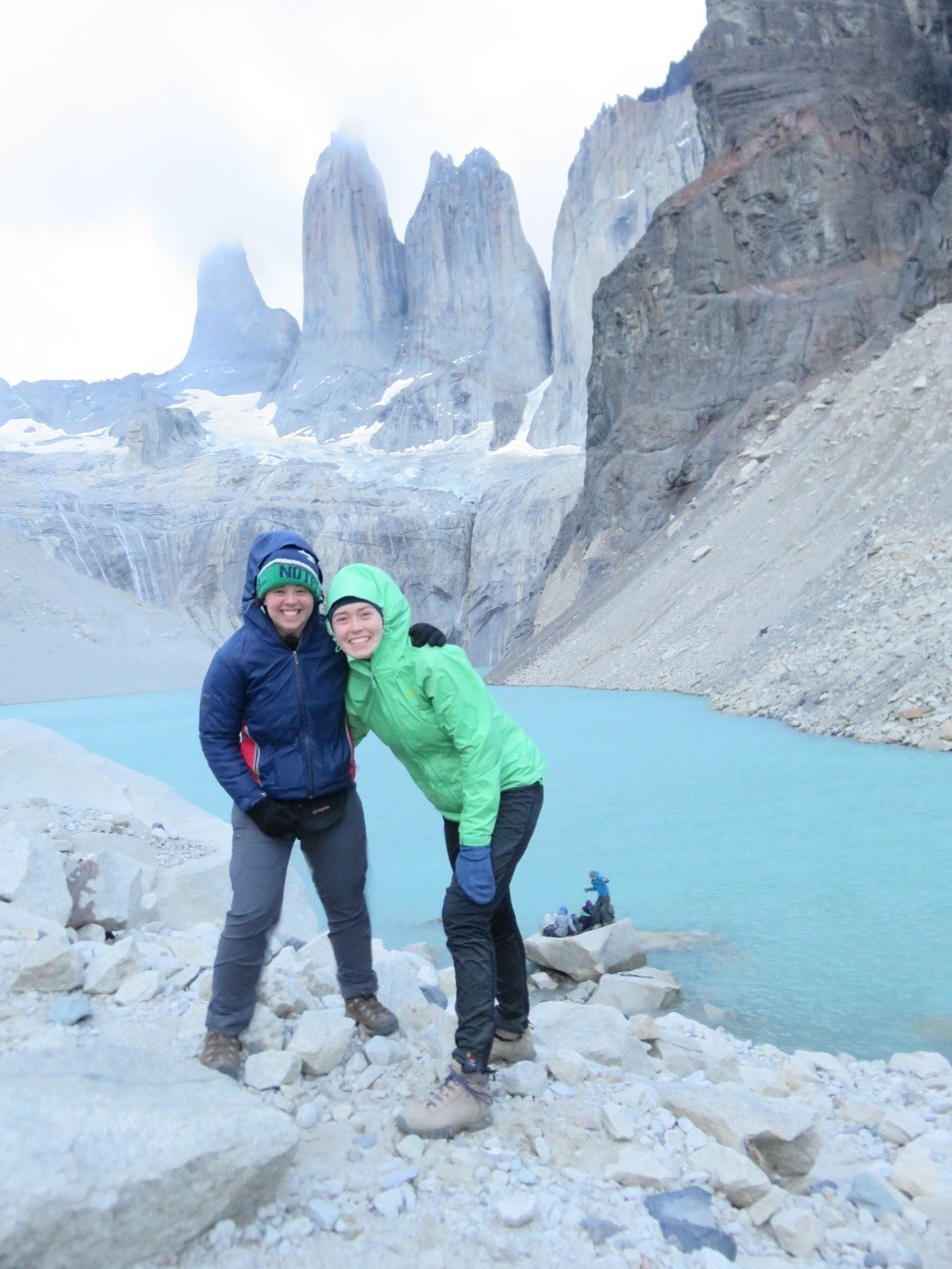Bridgid Smith, Anchor Senior Intern
As an Arts and Letters major I take great delight in reading hundreds of pages by multiple authors that cover a variety of topics, finding the common threads in all of them, synthesizing the most important points and finally focusing in on crucial themes. Though it can be a somewhat taxing process – one that a person might be tempted to skirt by seeking summaries – it does involve an element of excitement and discovery when that “light bulb” moment comes and things just begin to make sense and fit together.
Carrying over this practice of finding common themes over to my life in relationship with Christ I’ve noticed that trust has been coming up over and over again. Perhaps it has something to do with the fact that I’m a second semester senior and really have no idea what I’m doing next year. It’s comforting, I guess, to say “I trust that something will work out,” but stopping there would be selling trust much too short. The simple prayer, the mere five words Jesus, I trust in you have kept me rooted in faith despite all of the heartache, uncertainty, restlessness, and doubt that comes in college. Though sometimes I believed it and other times I struggled to do so, I’m learning more and more that cultivating trust in Jesus has impacted my time at Notre Dame more than I will probably ever know.
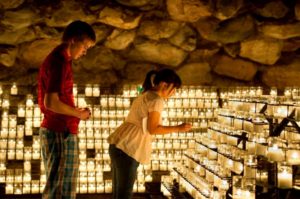
When I felt lonely and isolated and absolutely overwhelmed as a freshman who didn’t know anyone, I prayed Jesus, I trust in you. I trust that you have brought me to this place and you will not abandon me.
When I was rejected or things didn’t go according to my plans, I surrendered and said, Jesus, I trust in you. I trust that your plans are greater than my own.
When I felt heartache and hurt I turned to Jesus and cried, Jesus, I trust in you. I trust that You will bring healing and peace in your perfect time.
In schoolwork, in summer experiences, in community, in friendships, Jesus has asked me to trust in Him, to trust in His plan, to trust that He is who He says He is and works all things for my good (Romans 8:28).
And He has shown me that this trust, this hope in Him does not disappoint (Romans 5:5). He has opened windows when doors closed. He has led me to friends that make me more of who He created me to be. He has healed brokenness I never thought possible. He has helped me find a community I feel so blessed to be part of. Cultivating trust has not meant my life is somehow magically easy and smooth: I still have lonely moments; I feel uncertain; I definitely haven’t learned to avoid hurt or heartache. And yet cultivating trust has transformed these things from being mere obstacles in faith to occasions for my faith to grow stronger. Taking trust in Jesus seriously has been one of the most painful things I have ever opened myself up to but it has also given rise to a peace and joy and confidence in knowing that I am loved, protected, and never left alone.
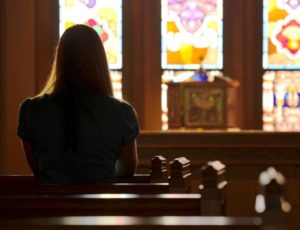
The theme of trust in my life is very much a daily endeavor, a work in a progress. I must constantly remind myself to trust in Jesus. The following prayer has helped me to nourish this trust, to make it more and more a part of my life. I pray that in some way it might do the same for you.
The Litany of Trust
From the belief that I have to earn your love
Deliver me, Jesus
From the fear that I am unlovable
Deliver me, Jesus
From the false security that I have what it takes
Deliver me, Jesus
From the fear that trusting You will leave me destitute
Deliver me, Jesus
From all suspicion of Your words and promises
Deliver me, Jesus
From the rebellion against childlike dependency on You
Deliver me, Jesus
From refusals and reluctances in accepting Your Will
Deliver me, Jesus
From anxiety about the future
Deliver me, Jesus
From resentment or excessive preoccupation with the past
Deliver me, Jesus
From restless self-seeking in the present moment
Deliver me, Jesus
From disbelief in Your love and presence
Deliver me, Jesus
From the fear of being asked to give more than I have
Deliver me, Jesus
From the belief that my life has no meaning or worth
Deliver me, Jesus
From the fear of what love demands
Deliver me, Jesus
From discouragement
Deliver me, Jesus
That You are continually holding me, sustaining me, loving me
Jesus, I trust in you
That Your love goes deeper than my sins and failings, and transforms me
Jesus, I trust in you
That not knowing what tomorrow brings is an invitation to lean on You
Jesus, I trust in you
That You are with me in my suffering
Jesus, I trust in you
That my suffering, united to Your own, will bear fruit in this life and the next
Jesus, I trust in you
That You will not leave me orphan, that You are present in Your Church
Jesus, I trust in you
That Your plan is better that anything else
Jesus, I trust in you
That You always hear me and in your goodness always respond to me
Jesus, I trust in you
That You give me the grace to accept forgiveness and to forgive others
Jesus, I trust in you
That You give me all the strength I need for what is asked
Jesus, I trust in you
That my life is a gift
Jesus, I trust in you
That You will teach me to trust You
Jesus, I trust in you
That You are my Lord and my God
Jesus, I trust in you
That I am Your beloved one
Jesus, I trust in you. Amen.
~ Sr. Faustina Maria Pia, SV
